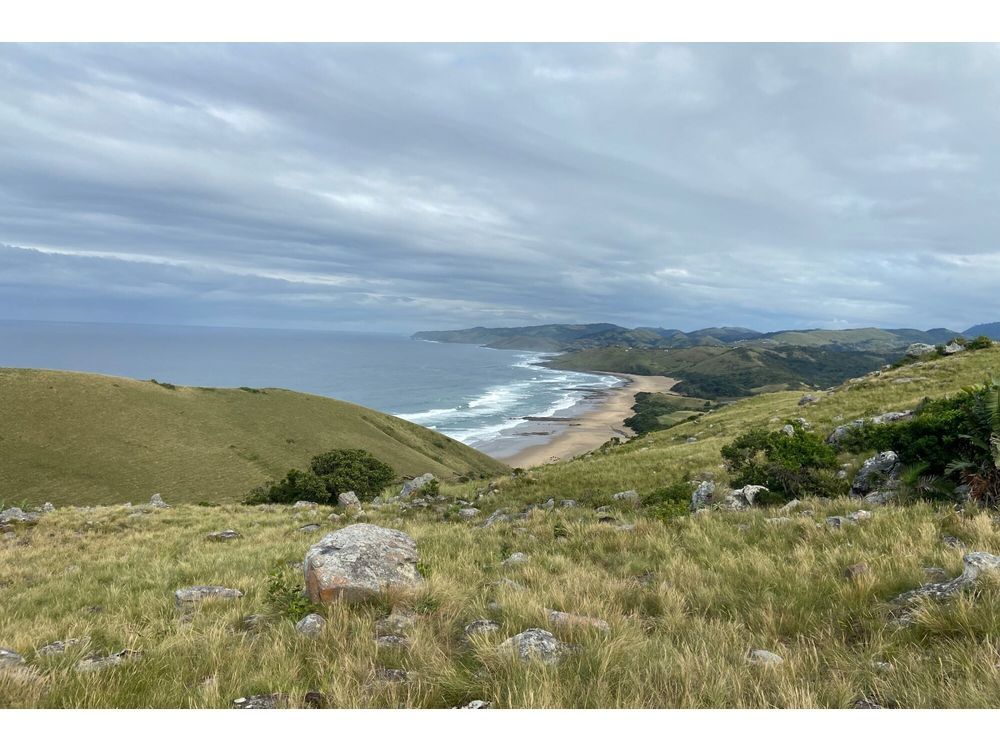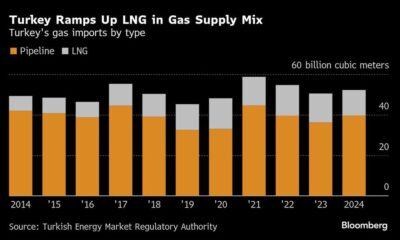Politics
South Africa’s Top Court to Rule on Shell’s Oil Exploration Rights

The South African Constitutional Court is set to hear critical arguments regarding the ongoing legal battle between environmental activists and Shell Plc, which could significantly influence the country’s emerging offshore oil industry. This decisive hearing, scheduled for March 15 and 16, 2024, follows a four-year saga that began with widespread protests against a seismic survey planned by Shell and a local partner along the picturesque Wild Coast of the Indian Ocean in 2021.
Environmental advocates raised alarms over the potential impact of the seismic survey on marine life, particularly around areas frequented by whales, and the lack of adequate consultation with local communities. In response to these concerns, courts initially granted an interdict that halted Shell’s exploration activities, prompting a complex legal process.
Legal Proceedings and Court Decisions
In 2022, the high court ruled against the decision to grant exploration rights to Shell, including two subsequent renewals. Although Shell’s appeal was dismissed, the Supreme Court of Appeal intervened, allowing a pending third renewal to proceed under the condition of proper public consultation. This ruling has kept the door open for Shell to potentially resume its exploration efforts.
The upcoming arguments at the Constitutional Court could either fortify the position of activists—who have had notable success in previous legal challenges—or enable the government to proceed with exploration activities that it argues are vital for economic growth. Shell and TotalEnergies SE are intensifying their preparations to drill in South Africa, following significant discoveries made off Namibia’s maritime border that have attracted considerable investor interest.
Financial Stakes and Environmental Concerns
Shell has indicated that it has invested approximately 1 billion rand ($58 million) in its exploration program thus far. A spokesperson for Shell noted that they are awaiting the court’s decision before providing further commentary on the situation. Activists, however, argue that the Appeals Court’s decision to allow Shell to seek renewal was flawed, as the original exploration right has been nullified and should not be reinstated through a new consultation process.
“If the decision to grant the exploration right was made unlawfully, it must be set aside,” stated Cormac Cullinan, a lawyer representing the environmental groups. He emphasized that a public consultation now would not rectify the original shortcomings that excluded many from participating in the decision-making process.
Additionally, Shell is currently reviewing a separate ruling from a South African court that revoked TotalEnergies’ environmental authorization for a different drilling block due to deficiencies in the assessment process. This decision highlights ongoing scrutiny regarding environmental regulations and community involvement in resource extraction projects.
Aluwani Museisi, country chair for Shell’s downstream business in South Africa, acknowledged the importance of community consultation, stating, “We will be ready to hear from the courts how we can do that better.”
The outcome of this legal battle could shape the future of South Africa’s energy landscape and set precedents for how environmental concerns are weighed against economic development in the oil and gas sector.
-

 World4 months ago
World4 months agoScientists Unearth Ancient Antarctic Ice to Unlock Climate Secrets
-

 Entertainment4 months ago
Entertainment4 months agoTrump and McCormick to Announce $70 Billion Energy Investments
-

 Lifestyle4 months ago
Lifestyle4 months agoTransLink Launches Food Truck Program to Boost Revenue in Vancouver
-

 Science4 months ago
Science4 months agoFour Astronauts Return to Earth After International Space Station Mission
-

 Technology2 months ago
Technology2 months agoApple Notes Enhances Functionality with Markdown Support in macOS 26
-

 Top Stories3 weeks ago
Top Stories3 weeks agoUrgent Update: Fatal Crash on Highway 99 Claims Life of Pitt Meadows Man
-

 Sports4 months ago
Sports4 months agoSearch Underway for Missing Hunter Amid Hokkaido Bear Emergency
-

 Politics3 months ago
Politics3 months agoUkrainian Tennis Star Elina Svitolina Faces Death Threats Online
-

 Politics4 months ago
Politics4 months agoCarney Engages First Nations Leaders at Development Law Summit
-

 Technology4 months ago
Technology4 months agoFrosthaven Launches Early Access on July 31, 2025
-

 Top Stories1 week ago
Top Stories1 week agoFamily Remembers Beverley Rowbotham 25 Years After Murder
-

 Entertainment4 months ago
Entertainment4 months agoCalgary Theatre Troupe Revives Magic at Winnipeg Fringe Festival

















